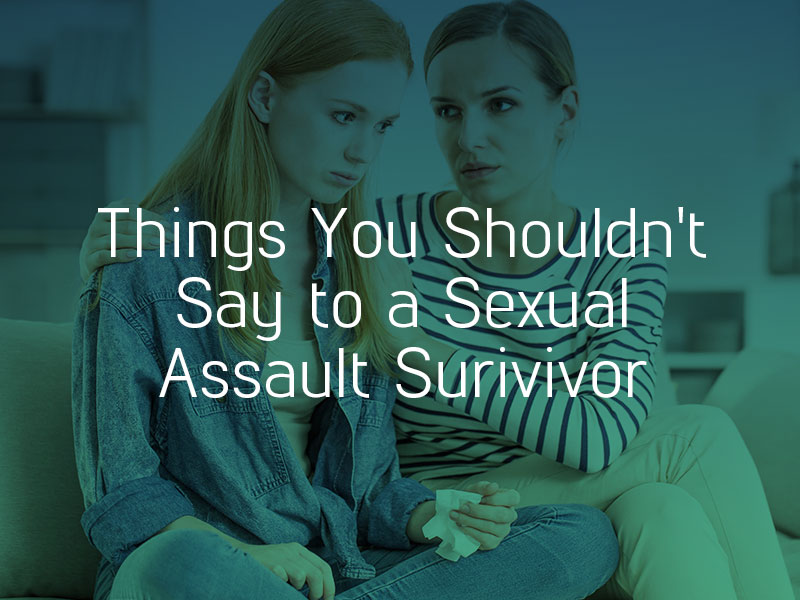Our society does not always treat survivors of sexual assault with the respect and kindness they deserve. Some people may cast doubt on a survivor’s story, while others may be quick to defend the person who assaulted him or her. There are certain phrases that people say to sexual assault survivors that place the blame on the victim, rather than the perpetrator who committed the heinous crime in the first place.
#1: “Why Didn’t You Fight Back?”
This statement may seem harmless, but it actually implies that the assault was the fault of the survivor. When we are in a dangerous situation, we can have a variety of responses – some people may have the urge to fight, some people may try to run away, some people may freeze and wait for the assault to be over. Never judge how a survivor handled the assault at the moment – you never know what he or she was going through at the time.
#2: “What Were You Wearing?”
This phrase is unfortunately common for survivors, and again places blame on the victim instead of the perpetrator. This statement implies that if the survivor was wearing revealing or tight clothing, he or she may have tempted the perpetrator into committing the assault.
The fact of the matter is that plenty of people wear revealing clothes and plenty of people can refrain from committing sexual assault when being around people who are wearing these clothes. In addition, sexual assault can occur no matter what the survivor was wearing at the time. Clothing does not play a role in sexual assault – the actions of the perpetrator did.
#3: “Are You Sure It Was Sexual Assault?”
Sexual assault can come in a number of forms, but they all have one common factor: a lack of consent. If the survivor experienced an unwanted sexual activity that he or she did not give his or her fully informed and enthusiastic consent to, the survivor experienced sexual assault.
If his or her story does not match what you hear about sexual assault in the news or on the media, it does not mean that what happened to him or her was not an instance of assault. Listen to the survivor and believe his or her story.
#4: “Were You Drinking?”
This is yet another statement that places the blame on the assault on the survivor. If you ask the survivor if he or she was intoxicated during his or her assault, this comes off as accusatory and like the survivor is at fault for what happened to him or her. The fact of the matter is that people who are too drunk cannot give consent to sexual activity – and if a perpetrator takes advantage of this, he or she commits an act of sexual assault.
#5: “But He or She Is Such a Good Person!”
Anyone can commit sexual assault, even if he or she seems like a good or moral person. Some survivors may feel like they cannot come forward about their assault because others view their perpetrators in a positive light and no one will believe their story.
If you say this statement to a sexual assault survivor, you may confirm this fear in their minds and prevent them from seeking help. Do not let your opinion of the perpetrator stop you from supporting the survivor.
If you know someone who is dealing with the aftermath of a sexual assault, it is important to be as kind and as supportive as possible. Remind him or her that you are available to help him or her through this difficult time and that you believe his or her story. If the survivor needs legal help, support him or her in finding a sexual assault attorney to assist with the case. It is important to seek this guidance as soon as the survivor is able to following an assault.

